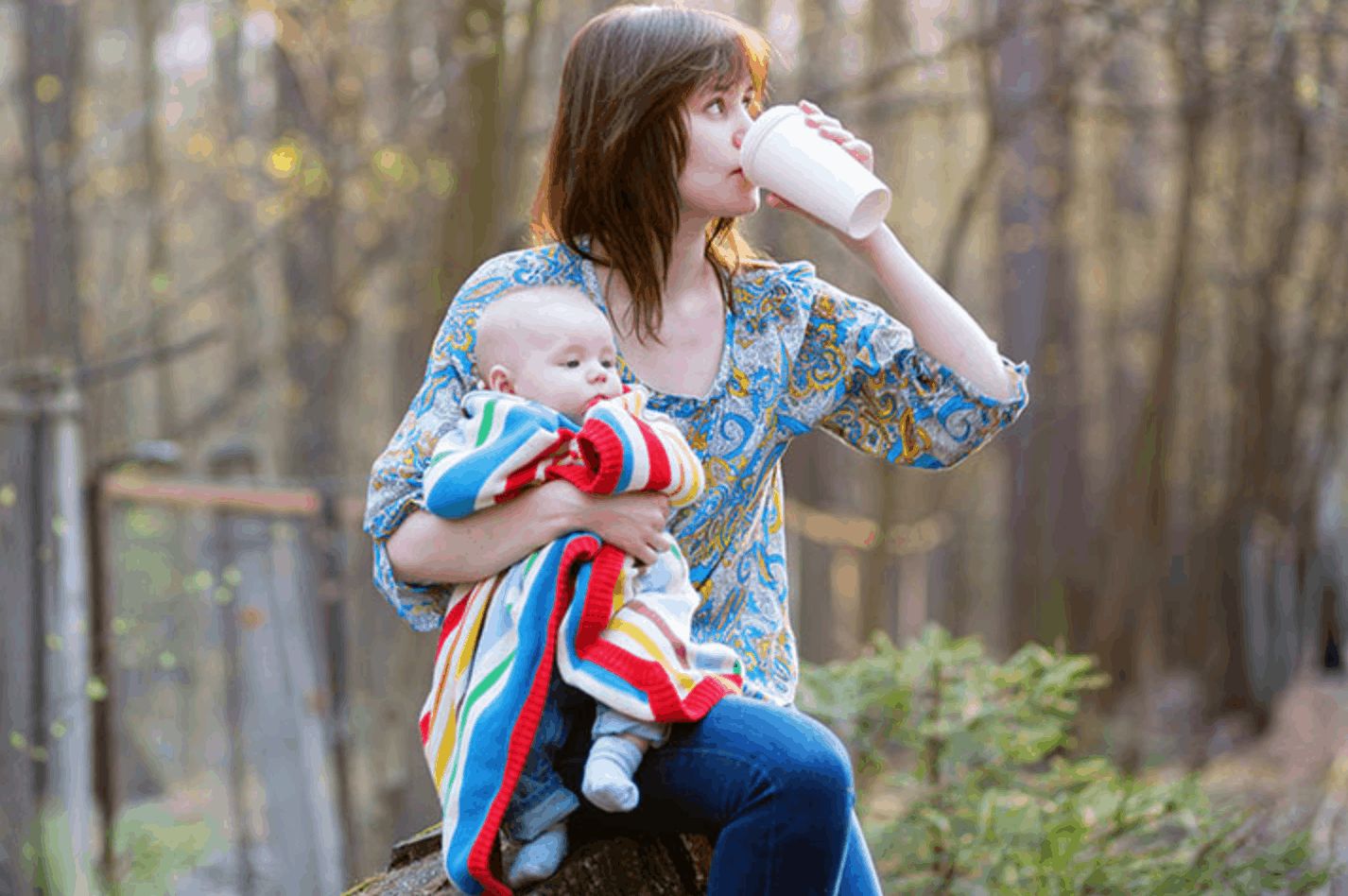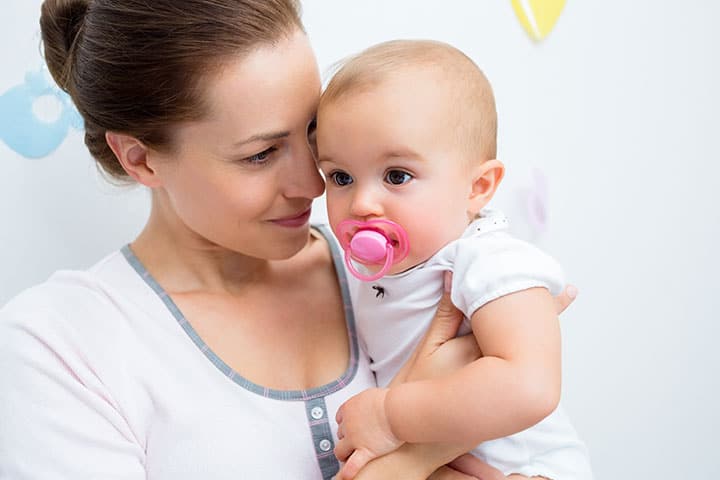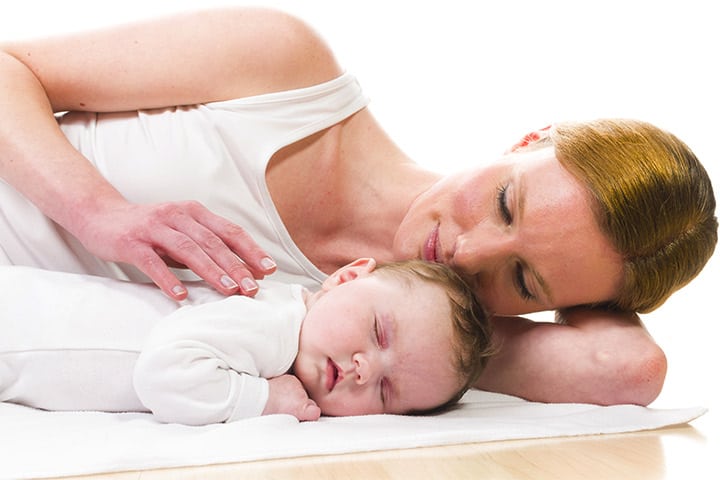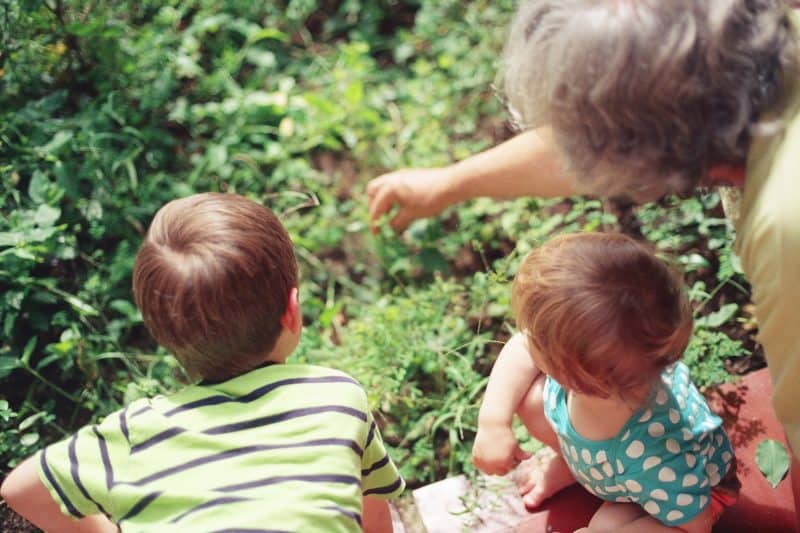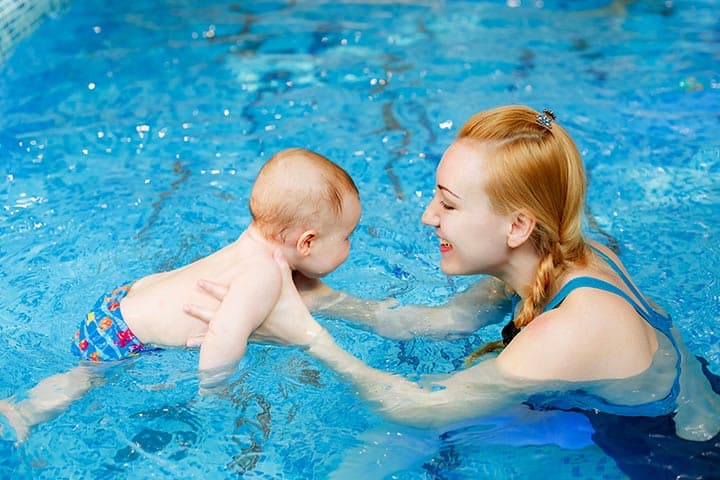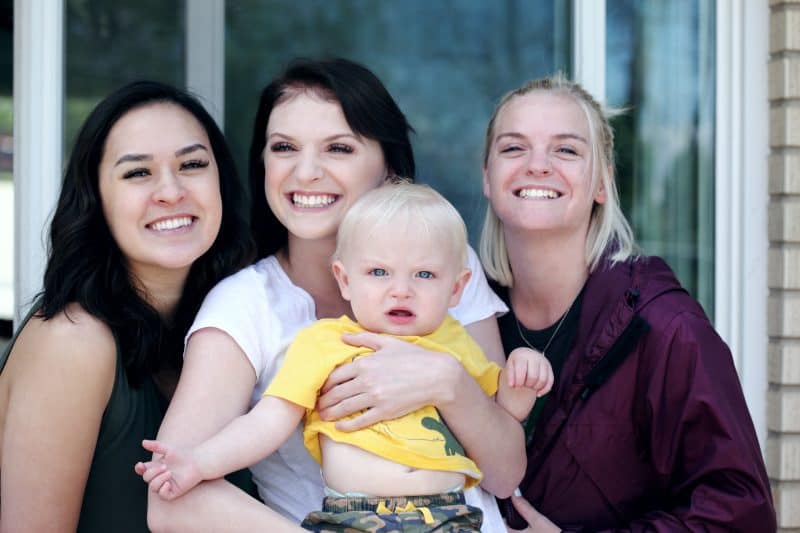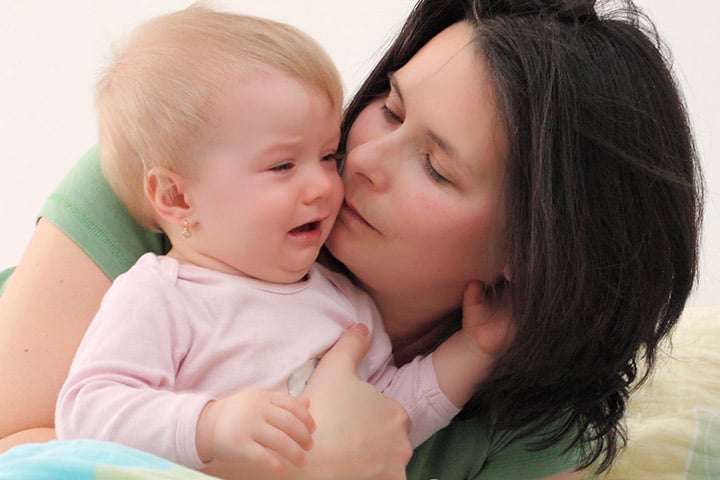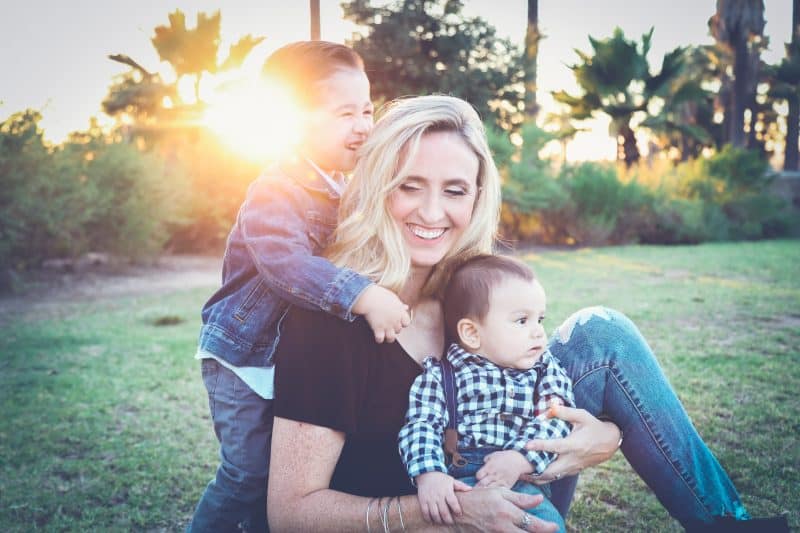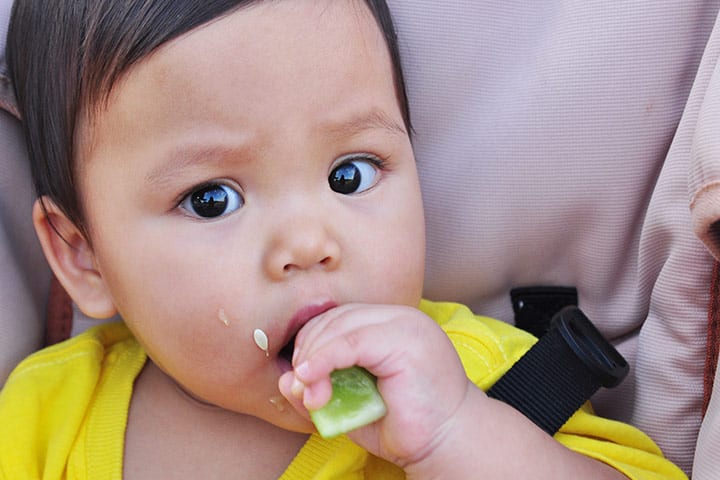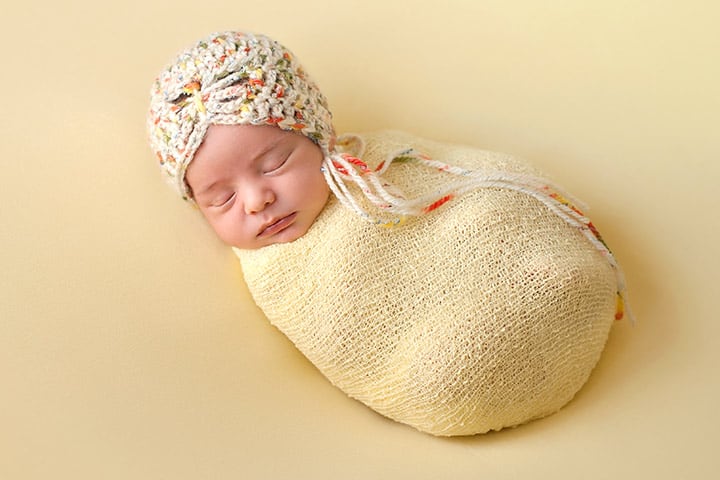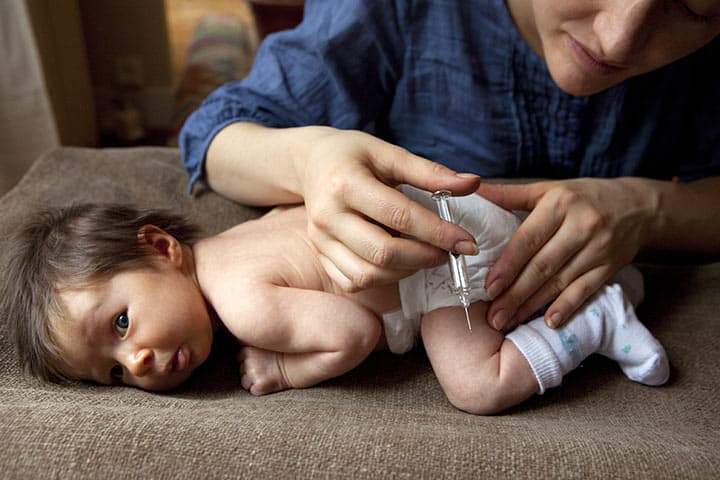Your baby’s cold can be just as hard on you as it is on her. But you can help ease your baby’s discomfort and keep the infection from worsening by ensuring she gets sufficient rest and liquids, which would include breast milk or formula if she’s less than four months old. Older babies can have a little water, and by six months she can begin drinking juices.
To relieve congestion, try squeezing some over-the-counter saline solution drops into each nostril, then suctioning with a rubber bulb syringe after a few moments to remove the mucus and liquid. This works well about fifteen minutes prior to a feeding if it’s difficult for your baby to breathe nasally while nursing. A bit of petroleum jelly to the outside of your baby’s nostrils can help reduce irritation.
Sitting with you in a steamy bathroom while the hot water’s on in the shower for about 15 minutes, or using a cool-mist vaporizer or humidifier to increase the moisture in your baby’s room should also help provide some relief for her. A warm bath could also work, and might provide her some additional comfort.
Sleeping at a slight incline may also help relieve postnasal drip. However, don’t use pillows in her crib to accomplish this; the risk of suffocation is too great. Try placing a couple of rolled up towels between the crib springs and mattress, or you might also want to try allowing her to sleep in her car seat in a slightly upright position.
Be sure to contact your pediatrician at the first sign of any illness in an infant less than three months old, especially in instances of a fever of 100.4 degrees or if she has a cough. Your pediatrician can give you guidelines about what constitutes a fever in older infants.
If baby’s symptoms don’t improve within five to seven days, her cough worsens, she’s wheezing or gasping (possible pneumonia or respiratory syncytial virus, or RSV), or tugs at her ear (possible ear infection), your pediatrician should also be notified immediately.




